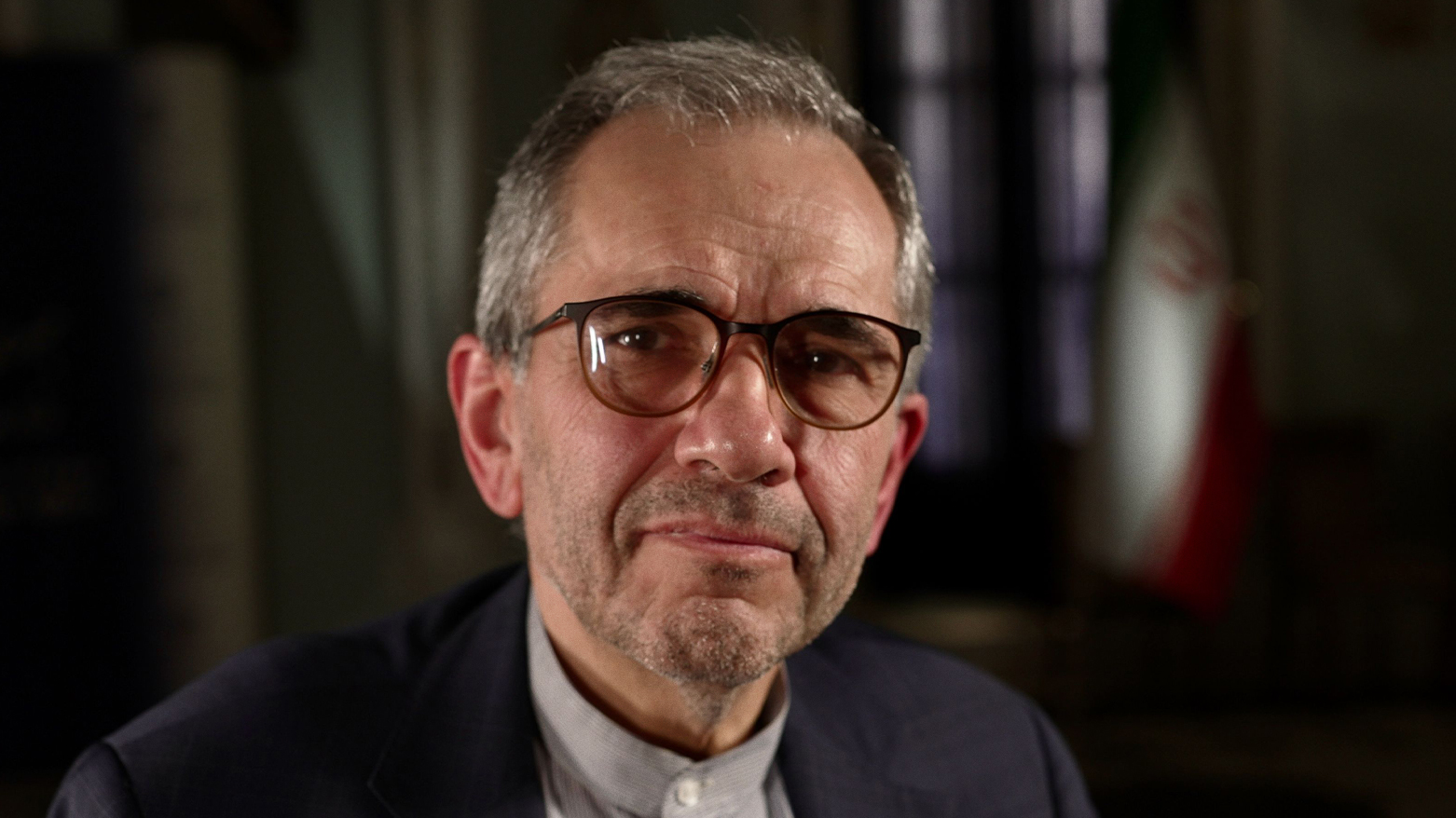Iran Urges U.S. to Rule Out Further Strikes Before Any Return to Talks, Deputy FM Tells BBC
Iran's deputy FM tells BBC any talks with U.S. hinge on assurances against further strikes. Takht-Ravanchi warns trust must be rebuilt post-bombings. He defends 60% uranium enrichment, denies weapons intent, and slams Western leaders for justifying aggression.

By Kamaran Aziz
ERBIL (Kurdistan 24) – Iran's Deputy Foreign Minister Majid Takht-Ravanchi has told the BBC that any return to diplomatic negotiations with the United States must be contingent upon a clear commitment from Washington to refrain from further military strikes.
Speaking with BBC Chief International Correspondent Lyse Doucet of BBC News, Takht-Ravanchi revealed that the Trump administration had relayed, through mediators, its willingness to resume talks this week. However, Tehran remains wary in the aftermath of U.S. airstrikes on Iranian nuclear facilities earlier this month.
"Right now, we are seeking an answer to this question—are we going to see a repetition of an act of aggression while we are engaging in dialogue?" said Takht-Ravanchi. "[The U.S.] must be quite clear on this very important question."
The deputy foreign minister emphasized that Iran is not ruling out diplomacy but needs assurances to rebuild trust. "What they are going to offer us in order to make the necessary confidence required for such a dialogue" remains unclear, he added.
Nuclear Enrichment and Sovereignty
In response to questions about Iran's nuclear program, Takht-Ravanchi insisted the enrichment activities are solely for peaceful purposes. "We have been denied access to nuclear material for our research programme, so we need to rely on ourselves," he said. "The level of that can be discussed, the capacity can be discussed, but to say that you should not have enrichment, you should have zero enrichment, and if you do not agree, we will bomb you—that is the law of the jungle."
Iran's uranium enrichment has been a focal point of international concern. Under the 2015 nuclear deal—formally known as the Joint Comprehensive Plan of Action (JCPOA)—Iran agreed to limit enrichment to 3.67% and halt activity at key facilities like Fordow. However, following the U.S. withdrawal from the agreement in 2018 under then-President Trump, Tehran began exceeding these limits. The International Atomic Energy Agency (IAEA) has confirmed that Iran resumed enrichment at Fordow in 2021 and is currently enriching uranium to 60%, a step below the 90% weapons-grade threshold.
U.S. Strikes and Israeli Involvement
Tensions have escalated since June 13, when Israel launched attacks on Iranian nuclear and military infrastructure, claiming Iran was nearing the capability to construct a nuclear weapon. Iran responded with missile attacks, and the U.S. entered the conflict directly on June 21 by bombing three nuclear sites—Fordow, Natanz, and Isfahan.
Iran has since reported that 935 people were killed in the Israeli strikes, according to forensic data released on Monday. Meanwhile, Israel’s Health Ministry stated that 28 Israeli citizens have died since Iran’s counterattacks began.
Assessments of the damage vary. IAEA Director General Rafael Grossi described the destruction as "severe but not total," while U.S. President Donald Trump declared that Iran's nuclear infrastructure had been "totally obliterated."
Takht-Ravanchi declined to confirm the extent of the damage, noting the situation remains under internal review.
Strained Relations with the IAEA
Iran’s relationship with the IAEA has come under increased scrutiny. Last Wednesday, Iran’s parliament passed legislation to suspend cooperation with the nuclear watchdog, accusing it of bias toward the U.S. and Israel. The deputy foreign minister did not provide details on future interaction with the IAEA but reiterated Tehran’s frustration.
Trump has publicly stated that he would "absolutely" consider authorizing another strike if Iran is found to be enriching uranium to weapons-grade levels. Takht-Ravanchi responded by questioning the logic of using military threats as a substitute for diplomacy.
No Agreement Yet on Agenda or Date for New Talks
Despite signals from Washington about a possible return to negotiations, Takht-Ravanchi said there is no confirmed date or agreed-upon agenda for talks. When asked about potential concessions from Iran—such as altering its nuclear strategy in exchange for sanctions relief or foreign investment—he replied, "Why should we agree to such a proposal?"
He reiterated that Iran’s current enrichment of uranium to 60% remains within the scope of peaceful purposes, although it marks a significant deviation from the limits set under the JCPOA.
Criticism of Western Leaders and Ceasefire Fragility
Takht-Ravanchi also addressed skepticism from Western leaders regarding Iran’s intentions, calling their criticism "ridiculous" if they fail to condemn the airstrikes on Iran. "If they do not have the guts to criticise America, they should keep silent, not try to justify the aggression," he said.
He also revealed that U.S. mediators conveyed messages stating that Washington "does not want to engage in regime change" by targeting Iran’s Supreme Leader Ayatollah Ali Khamenei. This came in contrast to Israeli Prime Minister Benjamin Netanyahu’s appeal to the Iranian public to overthrow the current clerical leadership.
Takht-Ravanchi dismissed such suggestions as unrealistic. "Although some Iranians might have criticism of some actions by the government, when it comes to foreign aggression they would be united to confront it," he said.
Future of the Ceasefire and Regional Mediation
On the current ceasefire with Israel, Takht-Ravanchi said it was “not quite clear” whether it would hold, but confirmed Iran’s commitment “as long as there is no military attack against us.”
He praised Arab states in the Persian Gulf for attempting to mediate and prepare an environment conducive to dialogue. Qatar, in particular, is reported to have played a vital role in brokering the ceasefire.
"We do not want war. We want to engage in dialogue and diplomacy, but we have to be prepared, we have to be cautious, not to be surprised again," the deputy minister concluded.
This report was based on BBC interviews conducted from Tehran and London. Lyse Doucet’s reporting was facilitated under Iranian regulations stipulating that her material not be republished by the BBC’s Persian-language service.
